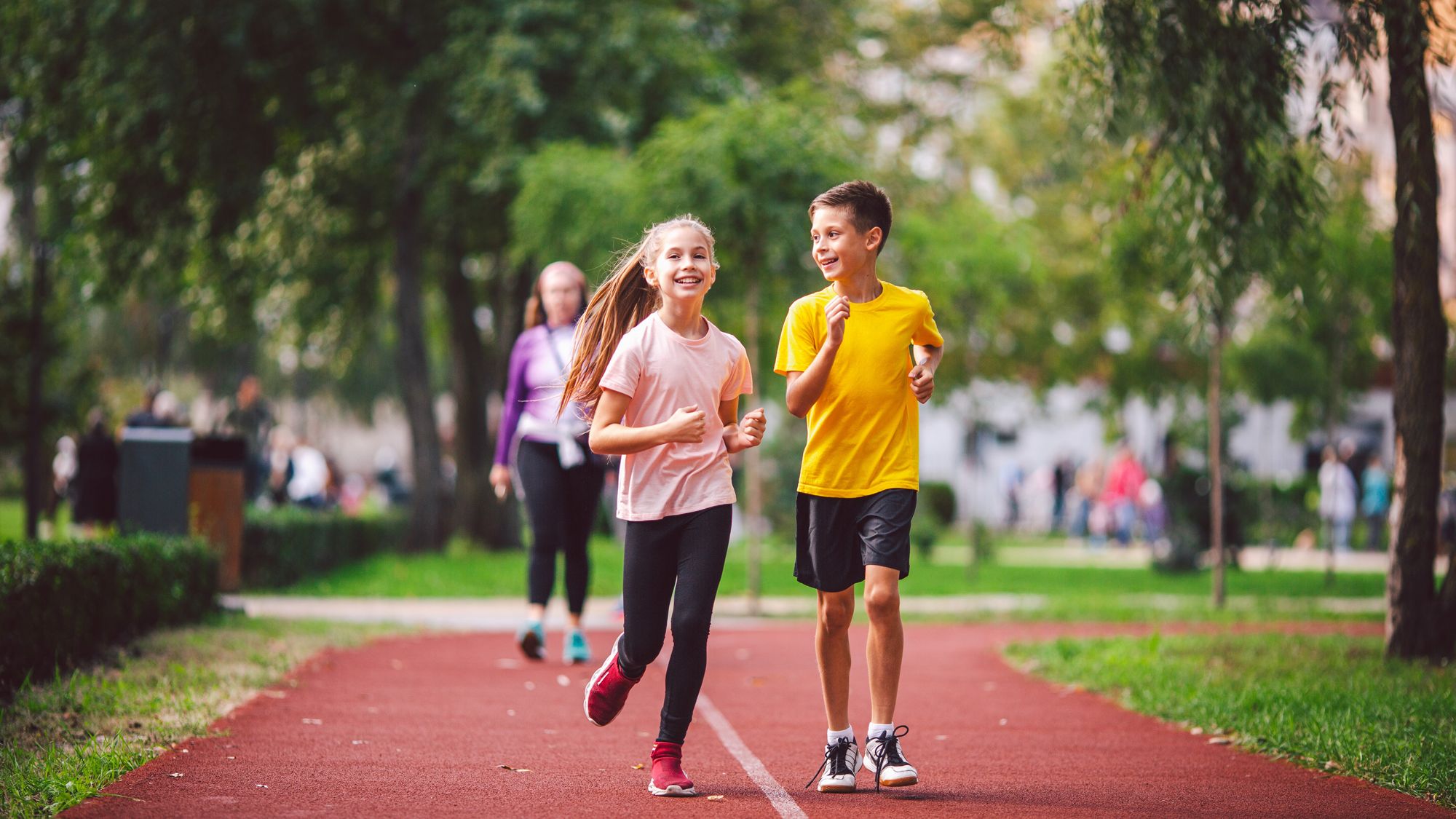SOPHYA: Wie körperlich aktiv sind Schweizer Kinder und Jugendliche?

SOPHYA (Swiss children’s Objectively measured PHYsical Activity) ist eine nationale Kohortenstudie unter der Leitung von Swiss TPH, die untersucht, wie sich Kinder und Jugendliche in der Schweiz in ihrem Alltag bewegen und wie sich ihre Bewegungsmuster von der Kindheit bis zum jungen Erwachsenenalter entwickeln. Als erste landesweite Langzeitstudie, die körperliche Aktivität objektiv misst und gleichzeitig Einflussfaktoren wie Sportbeteiligung, Familie, Lebensstil und Lebensumfeld bewertet, liefert SOPHYA fundierte Erkenntnisse über die kurz- und langfristigen Einflussfaktoren auf das Aktivitäts- und Sportverhalten von Kindern und Jugendlichen, die in die Gestaltung von Strategien und Programmen einfliessen können. Dieser hochwertige Datensatz unterstützt Strategien und Programme zur Förderung von körperlicher Aktivität und langfristiger Gesundheit.
Warum dies wichtig ist
Bewegungsmangel bei jungen Menschen ist ein wichtiger Risikofaktor für nicht übertragbare Krankheiten im späteren Leben. Um wirksame Maßnahmen zu entwickeln, ist es unerlässlich zu verstehen, wie das Umfeld, das Familienleben und der soziale Kontext das Aktivitätsniveau beeinflussen.
Unsere Studien
SOPHYA (2014–2015)
Für die Studie wurde eine national repräsentative, geschichtete Zufallsstichprobe von Schweizer Kindern und Jugendlichen im Alter von 6 bis 16 Jahren rekrutiert. Letztlich lieferten 1320 Teilnehmer, die gültige Basisdaten aus Beschleunigungsmessern bereitstellten, die Analysekohorte. Die körperliche Aktivität wurde mithilfe von Beschleunigungsmessern gemessen, die eine Woche lang getragen wurden. Ergänzt wurden diese Daten durch detaillierte Informationen über Familie, Nachbarschaftsumfeld, Teilnahme an organisierten Sportaktivitäten und Gesundheitsfaktoren.
SOPHYA-2 (Follow-up)
Die ursprüngliche Kohorte wurde fünf Jahre später erneut untersucht, um die Veränderungen der Aktivitätsmuster während der Adoleszenz und im frühen Erwachsenenalter zu analysieren. Im Jahr 2019/2020 wurde die SOPHYA-Kohorte um eine neue Stichprobe von 5- bis 10-jährigen Kindern erweitert. Diese wurden über Registerdaten rekrutiert. Anstelle eines Telefoninterviews füllten die Eltern einen Online-Fragebogen aus. Abgesehen davon war das Design identisch mit dem der ursprünglichen SOPHYA-Kohorte. SOPHYA-2 ist nun abgeschlossen und es findet derzeit keine Datenerhebung statt. Die Kohorte kann jedoch für zukünftige Follow-ups reaktiviert werden, sobald die Finanzierung gesichert ist.
Die wichtigsten Ergebnisse
- Die körperliche Aktivität nahm mit zunehmendem Alter ab – jedoch nicht bei allen Kindern. Die Teilnahme an organisierten Sportaktivitäten trug dazu bei, dem altersbedingten Rückgang der Aktivität entgegenzuwirken.
- Kinder, die in jungen Jahren weniger aktiv waren, traten seltener einem Sportverein bei, blieben seltener Mitglied und blieben später seltener aktiv.
- Mädchen und junge Frauen (insbesondere mit Migrationshintergrund) waren weniger aktiv als Jungen. Es gab große Unterschiede bei alltäglichen Aktivitäten wie Radfahren und bei der Teilnahme an Sportvereinen.
- Die Aktivität der Eltern stand in Zusammenhang mit der Aktivität der Kinder, auch langfristig.
- Ein niedrigerer Schulabschluss war mit dem Austritt aus Sportvereinen verbunden.
- Der sozioökonomische Status hatte hingegen nur geringen Einfluss auf die gemessene gewohnheitsmäßige Aktivität, wirkte sich jedoch auf die Teilnahme an Sportvereinen aus. Freiwillige Schulsportarten und Pfadfinder erreichten alle Gruppen. Gleichzeitig gewann die sozioökonomische Benachteiligung in Verbindung mit umweltbedingten Hindernissen an Bedeutung: Kinder aus einkommensschwachen Haushalten, die in weniger aktivitätsfreundlichen Stadtvierteln lebten, blieben mit größerer Wahrscheinlichkeit über einen längeren Zeitraum weniger aktiv.
- Aktivitätsfreundliche Umgebungen (bessere wahrgenommene Sicherheit, Ästhetik, Zugang zu Grünflächen sowie eine objektiv gemessene geringere Hauptstraßendichte und mehr Grünflächen) unterstützten langfristige Aktivitäten, während weniger unterstützende Umgebungen dauerhafte negative Auswirkungen hatten.
- Körperliche Aktivität war quer durch alle Gruppen mit einer verbesserten Lebensqualität verbunden, jedoch nicht fünf Jahre später.
- Während der COVID-19-Pandemie behielten jüngere Kinder ihr Aktivitätsniveau im Vergleich zur Zeit vor der Pandemie bei. Allerdings traten Mädchen später Sportvereinen bei und die Lebensqualität verschlechterte sich.
Was bedeutet dies für Politik und Praxis?
- Aktivitätsfreundliche Umgebungen schaffen und schützen, die sichere Mobilität und zugängliche Grünflächen bieten, um unstrukturierte bzw. informelle körperliche Aktivitäten zu fördern und die spätere Teilnahme an organisierten Sportarten zu erleichtern.
- Förderung der frühzeitigen Teilnahme an körperlichen Aktivitäten (unstrukturiert und organisiert), um langfristig aktives Verhalten zu unterstützen, wobei der Schwerpunkt auf weniger aktiven Kindern und Jugendlichen liegt.
- Angebote schaffen, um nach dem Schulabschluss aktiv zu bleiben, da viele junge Menschen zu diesem Zeitpunkt aus dem organisierten Sport aussteigen.
- Mädchen und junge Frauen sollen bei unstrukturierten/informellen Bewegungsangeboten, aber auch beim Zugang zu organisierten Sportarten stärker unterstützt werden, insbesondere diejenigen mit Migrationshintergrund.
- Sicherstellung erschwinglicher und inklusiver Sportangebote sowie Beibehaltung des freiwilligen Schulsports als wichtiges Angebot für alle sozioökonomischen Gruppen.
- Anerkennung der Rolle körperlicher Aktivität für die Förderung der allgemeinen Gesundheit, des Wohlbefindens und der Resilienz, auch in Krisenzeiten.
Aktueller Status und Zukunftsaussichten
- SOPHYA-2 ist abgeschlossen und die neuesten Analysen liegen vor. Die Kohortenstruktur bleibt intakt und bietet eine hervorragende Grundlage für zukünftige Folgestudien – abhängig von der Finanzierung und den strategischen Prioritäten.
Berichte und Ressourcen
SOPHYA und SOPHYA-2 Zusammenfassende Berichte (2022)
- Wissenschaftlicher Schlussbericht (DE)
- Informationsbroschüre (DE/FR/IT)
Frühere Veröffentlichungen (2016)
- Wissenschaftlicher Schlussbericht (DE)
- Zusammenfassung (EN/FR/DE/IT)
- Informationsbroschüre (DE/FR/IT)
Wissenschaftliche Publikationen
Körperliche Aktivität der Eltern und körperliche Aktivität der Kinder:
Parental modelling has a sustainable effect on offspring’s physical activity: the SOPHYA cohort | BMC Public Health (2025)
Organisierter Sport und körperliche Aktivität:
Participation in organised sports and longitudinal development of physical activity in Swiss youth: the population-based SOPHYA cohort | Swiss Medical Weekly (2024)
Körperliche Aktivität und Wohnumfeld:
Does growing up in a physical activity-friendly neighborhood increase the likelihood of remaining active during adolescence and early adulthood? | BMC Public Health (2024)
Körperliche Aktivität und Lebensqualität:
Weekend physical activity profiles and their relationship with quality of life: The SOPHYA cohort of Swiss children and adolescents | PLOS One (2024)
Cross-Sectional but Not Prospective Association of Accelerometry-Derived Physical Activity With Quality of Life in Children and Adolescents | International Journal of Public Health (2024)
Lebensqualität und Covid-19:
COVID-19 pandemic and health related quality of life in primary school children in Switzerland: a repeated cross-sectional study | Swiss Medical Weekly (2021)
Frühere Publikationen